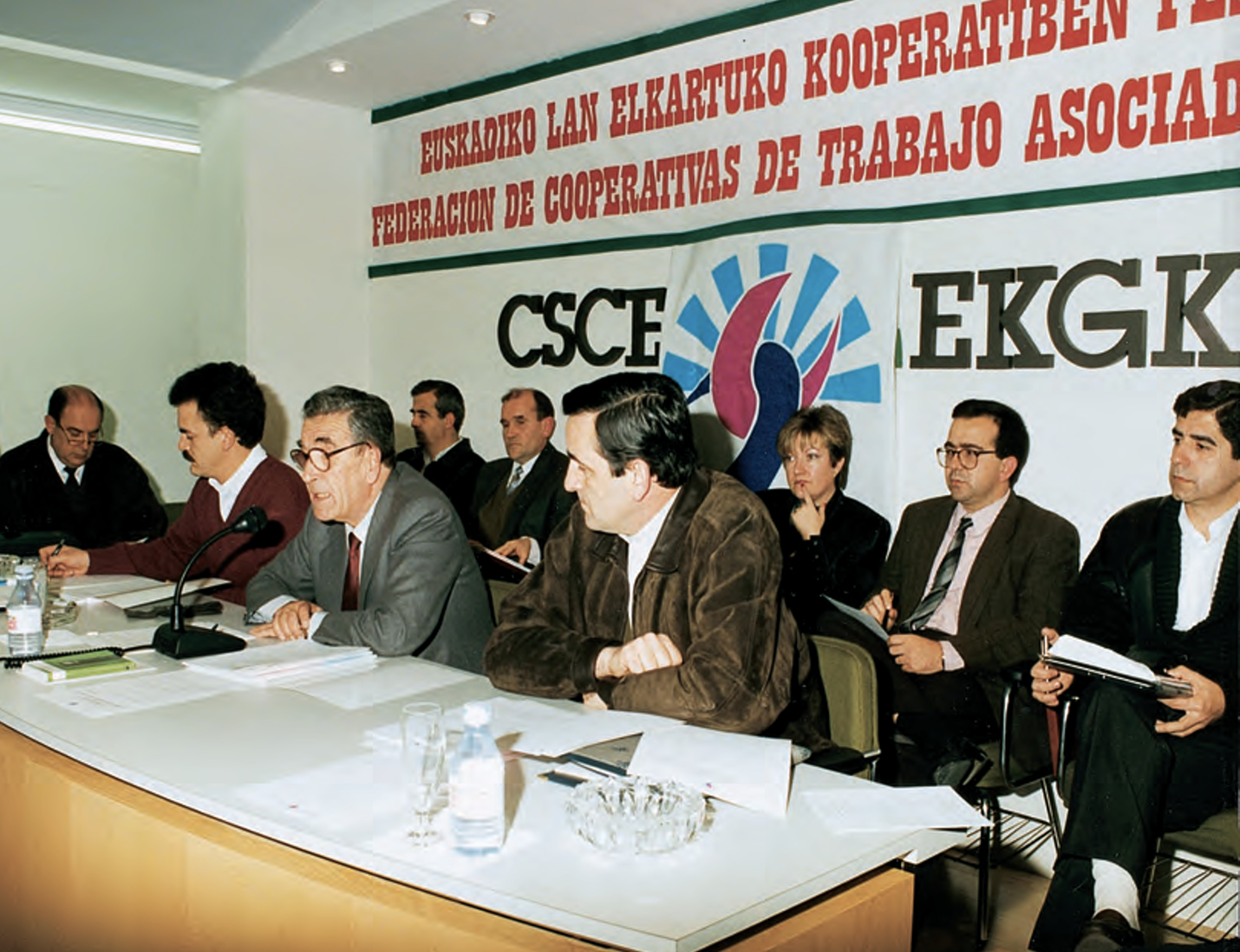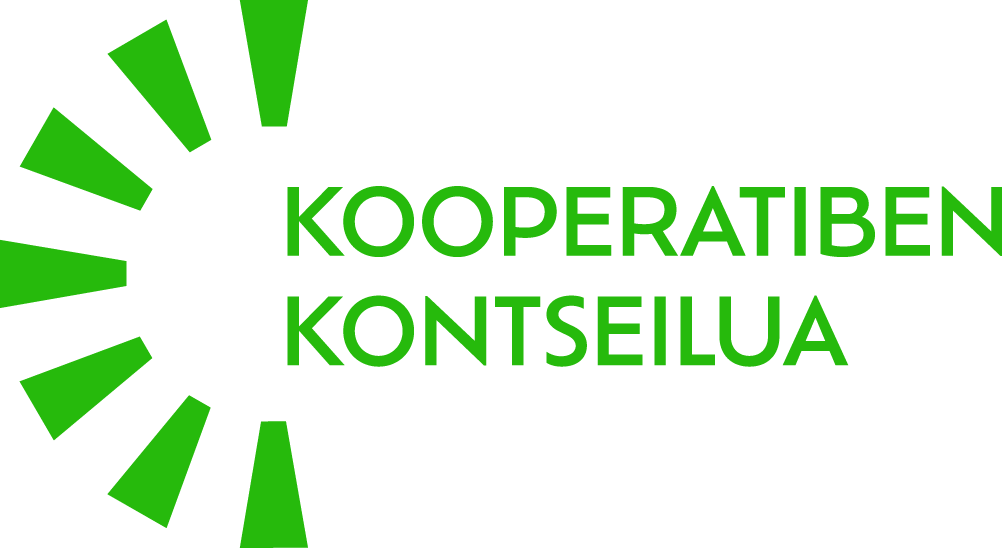PUBLICATIONS

Law 11/2019, of December 20, on Cooperatives of the Basque Country (B.O.P.V. nº 247, of December 30, 2019)
Modified by Law 5/2021, of October 7 (B.O.P.V. No. 209, of October 20, 2021)
Gloss to the Euskadi Cooperative Law
Comments to the article of the text of Law 11/2019, of December 20, of Cooperatives of Euskadi (B.O.P.V. nº 247, of December 3, 2019)
Modified by Law 5/2021, of October 7 (B.O.P.V. No. 209, of October 20, 2021)
25th anniversary of Kooperatiben Kontseilua
History of the Superior Council of Cooperatives of Euskadi, 1983-2009
Lanbide report
Legal report on Konfekoop’s right to participate in Lanbide’s board of directors
Education cooperatives cooperation in education
Once the need to promote Cooperative Training has been identified, the ERKIDE Federation of Education Cooperatives, in its contribution to the 2007 Decree, emphasizes the importance of promoting IKASKIDETZA (learning that takes place in Peer Groups).
Challenges of cooperativism in the Basque Country
To work in collaboration with cooperatives.


Activities memory
2022
Memoria de Actividades
2021
Memoria de Actividades
2020
Memoria de Actividades
2019
Memoria de Actividades
2018
Memoria de Actividades
2017
Memoria de Actividades
2016
Memoria de Actividades
2015
Memoria de Actividades
2014
Memoria de Actividades
2013
Memoria de Actividades
2012
Memoria de Actividades
2011
Memoria de Actividades
2010
Memoria de Actividades
2009
Memoria de Actividades
2008
Memoria de Actividades
2007
Memoria de Actividades
2006
Memoria de Actividades
2005
Memoria de Actividades
2004
Memoria de Actividades
2003
Memoria de Actividades
2002
Memoria de Actividades
2001
Memoria de Actividades

History of Basque cooperativism
Extract and conclusions of the «Basque Cooperativism Report». This report, promoted by the Council of Cooperatives, was prepared by LKS in the year 2000.
The union of wills is the best way to solve problems, and cooperatives are essentially that: an example of human cooperation to satisfy needs, and that through the management and organization of a company. Throughout their 150-year history, these societies have shown that, thanks to cooperation, people have a great opportunity for development and also contribute to the construction and improvement of their social, economic and cultural environment. And as such a union of people, it has its own personality, due to a series of values and principles that distinguish it from classic commercial companies. On these common bases, cooperatives are present in all sectors of activity, in all corners of the world, regardless of cultural, ethnic or religious differences.
The birth of the cooperative philosophy
The cooperative philosophy was born in Europe in the mid-19th century, along the lines of the deep social inequalities caused by the industrial revolution, with the initial objective of giving the company a social and human dimension, in which work was a factor. of alienation for the person. Despite previous experiences, the inspiring model for the following cooperative manifestations was that of some English weavers: the Rochdale Direct Pioneers formed the first consumer cooperative. Fed up with the excesses of local merchants, men and women came together to manage their consumption and thus obtain quality goods at a fair price, establishing the bases, principles, and cooperative values of modern cooperatives.
The birth of industrial cooperativism
This modest association formula allowed all partners to participate equally in the management of the company and little by little it spread throughout Europe, where workers and the marginalized classes experienced a situation of similar oppression. This is how industrial cooperativism was born in France, credit in Germany, as well as agricultural, service, housing, health, etc. cooperatives.
The theoretical bases of these societies were established by the thinkers Robert Owen, Charles Fournier, Claude-Henri Saint-Simon, or Louis Blanc, determining the principles of cooperation. Little by little, mutual aid became the best way to manage all areas of people’s lives and cooperative experiences were successfully extended to all areas where there were unsatisfied human needs. In the institutional sphere, the creation of the International Cooperative Alliance, ICA, stands out.
Mondragon experience
In the Basque Country, cooperatives appeared at the end of the 19th century and the first consumer cooperatives emerged around large industries such as Altos Hornos de Bilbao. Ways were then opened to apply the cooperative ideology to all sectors of the economy, always with the common objective of improving the quality of life of the members. The Basque cooperative movement was based on various ideologies, the most important being Catholic, Socialist and Nationalist.
In the Basque Country, Alfa was the first manifestation of associated work cooperativism in the 1920s, and this type of cooperativism is the one that has had the most roots in Basque society; Subsequently, the Mondragón Experience was born in 1957, the first business group with Basque capital today (MONDRAGON), and one of the most studied models internationally due to its successful social and business results. The recent history of Basque cooperativism is marked by the effort of the Higher Council of Cooperatives of Euskadi to integrate and structure the movement, which since its creation in 1982 has worked to promote and promote the development and modernization of Basque cooperatives.





THE BASQUE COOPERATIVES CURRENTLY
On the website of the Department of Justice, Employment and Social Security of the Basque Government (www.juslan.ejgv.euskadi.net) the reports of the Social Economy Statistics 2006 (Biennium 2004/2006) are published, as well as the progress of 2007 results.
Pending to make the updated report on the cooperative sector.
At the institutional level, it is worth mentioning the Collaboration Agreement signed in June 2005 between the Basque Government, the Higher Council of Cooperatives of Euskadi and the Confederation of Cooperatives of Euskadi, in matters of cooperation for the sustainable economic and social development of the Basque Country .
To consult the updated data of the cooperative registry, consult the statistical annexes of the Activity Report.

